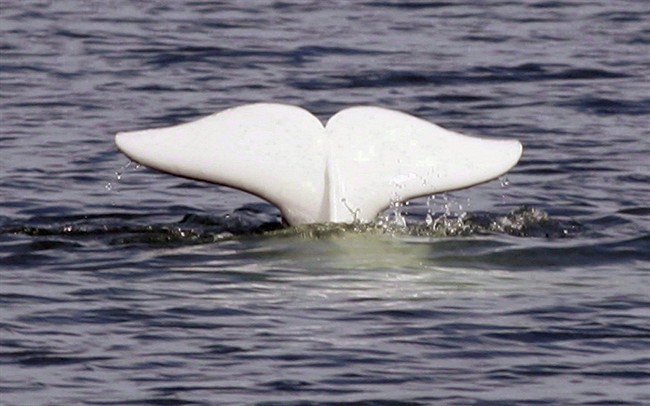A new study says COVID-19 could be spread to whales and other marine mammal through improperly treated sewage and wastewater.

Researchers at Dalhousie University in Halifax say while there have been no documented cases to date, both dolphins and beluga whales have been infected with related coronaviruses in the past.
READ MORE: Video captures jaw-dropping moment whale jumps out of water in Newfoundland
In the study, published in the journal Science of the Total Environment, scientists describes how they used genomic mapping to determine which marine mammals would be vulnerable to the novel coronavirus that causes COVID-19.

Get daily National news
When the team looked at amino acids to which the virus binds, they found striking similarities between those in humans and in several marine mammals, including dolphins, beluga whales, seals and sea otters.

Graham Dellaire, director of research in the university’s pathology department, said the team found at least 15 marine mammal species were susceptible to infection because they each carry a protein required for the virus to infect cells.
The study predicts that the majority of whale, dolphin and porpoise species – 18 out of 21 – have the same or higher susceptibility to the virus as humans, while eight out of nine seal species are also predicted to be highly susceptible.







Comments